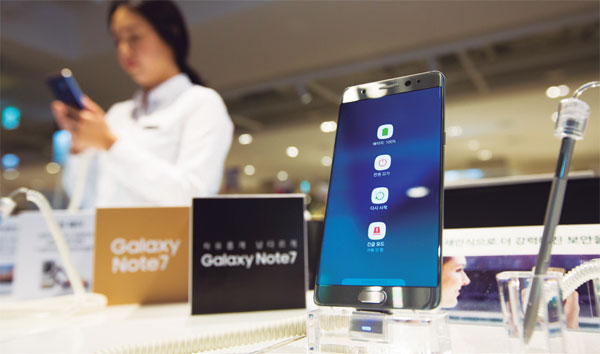Samsung cellphone fiasco offers a good lesson for HK tech
Updated: 2017-01-25 07:23
By Peter Liang(HK Edition)
|
|||||||||
South Korean electronics titan Samsung has now come up with details of the problem that led to the combustible failure in its flagship smartphone Galaxy Note 7. The disclosure has exposed the underlying flaws in South Korea's economic development model that was once unreservedly admired and emulated by various regional economies, including Hong Kong, especially in developing high-tech industries.
It's undeniable that the largely government-funded and directed growth model has helped drive the country's major manufacturers, like Samsung, to compete successfully with the long-established technology rivals from the United States, Europe and Japan in the global marketplace. Samsung, like other South Korean industrial conglomerates, was created by the government by concentrating on available resources in nurturing a few favored entrepreneurs.
But the Note 7 fiasco has brought into question the system's capability in promoting innovation. The shortage of fresh ideas is seen to have forced Samsung phone engineers to push available technologies to the extreme to compete with Apple at the high end of the market and various Chinese mainland producers at the other end. They apparently had gone too far in getting the Note 7 into the market before Apple had released its new model.
Unnamed sources told the New York Times that Samsung's insistence on speed and internal pressures to outdo its rivals indicates a breakdown in its ability to truly innovate and push out new ideas. They said Samsung's top-down corporate culture, a reflection of the government's economic policy, is not conducive to innovation and creativity.
As such, the Note 7 case has intensified criticisms of the South Korean government's policy of nurturing startups and promoting technology innovation. Critics charged that Seoul had set too many conditions and got too involved in managing the companies it subsidizes with direct funding and other incentives, such as land grants.
The South Korean model, however, is not without its merits. It had proved itself to be most effective in helping the country's technology industry catch up with those in the developed economies. But, only now at this stage of development, that its limitations are showing up.
There are a lot of things Hong Kong can learn from the South Korean setback. The SAR has the benefit of knowing the model's limitations and drawbacks. Such knowledge can be most helpful in designing a model that can help the city's fledgling technology industry that has been lagging behind those of its regional rivals, to compete.
|
The troubled-plagued Samsung Galaxy Note 7, now withdrawn from sales, used to be one of the South Korean group's most sought-after smartphone models. The company said incidents of explosions involving the Galaxy Note 7 last year were caused by problems in the battery manufacturing and design process. SeongJoon Cho / Bloomberg |
(HK Edition 01/25/2017 page8)
